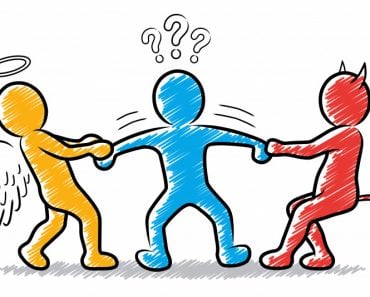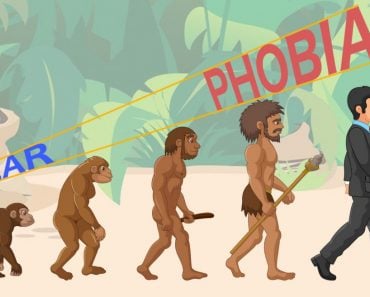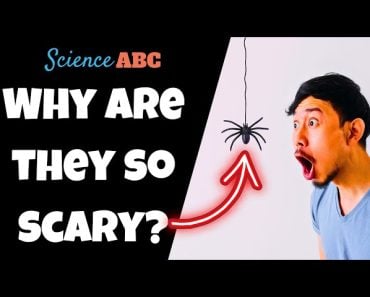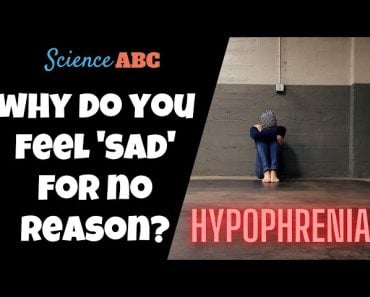Table of Contents (click to expand)
The answer to this question is that emotions are a combination of both nature and nurture. We are born with certain emotions, but we also learn some emotions later in life.
Emotions are like our best friend—they can be a gift and a curse at the same time! They make us laugh, they make us cry and sometimes they wind us up! We’re glad they exist, but sometimes, they won’t leave us alone, even when we beg them for some extra space or peace.
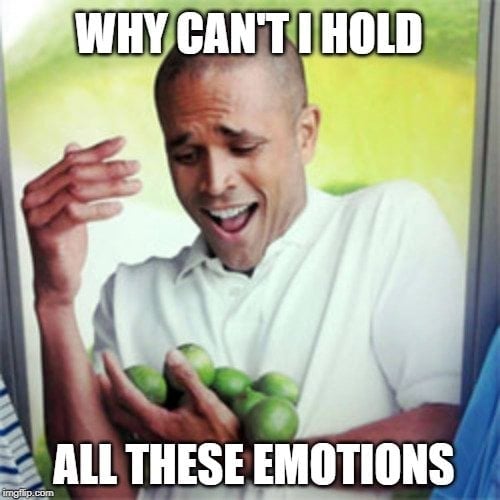
We’ve been experiencing emotions for as far back as we can remember. They have always been a part of our lives and have been influencing our personalities from the very beginning. However, this begs the question—where do emotions come from? Are they adaptations handed down from centuries of evolution, or are they a product of society and culture?
Recommended Video for you:
Evolutionary View – Emotions Are Adaptations
Evolutionary psychologists believe that emotions are adaptations that have evolved in response to the challenges faced by our ancestors. They believe that emotions are innate, meaning that we are born with them wired into our brains. Some psychologists restrict their claims to a small set of ‘basic’ emotions, which are called the Big Six—happiness, sadness, fear, surprise, anger and disgust.
One strategy to prove that emotions are a product of evolution is to prove that they are universal across the globe. Some emotions seem to be universal and are found to be similar across cultures, despite significant environment variations. People of an isolated preliterate tribe in New Guinea associated facial expressions of the basic emotions with the same types of situations with which we associate them in the West. For example, most people paired a disgusted expression with rotten food, the angry face with an insult, and the sad face with the loss of a child.
However, universality is not sufficient proof of innateness. The fact that people universally believe that the sun is warm does not prove that people are born with that belief.

The sun is warm across the globe, which is the reason people universally believe it to be so.
This is where the feature of learnability comes in. The fact that the sun is warm is learned in schools. Contrast that with sneezing, which is an involuntary response of the body. Sneezing isn’t something that can be learned by weighing evidence and drawing inferences, since it’s totally out of our control. Emotions are not like beliefs, but they are passive, like sneezing, to it doesn’t seem as though they could be learned.
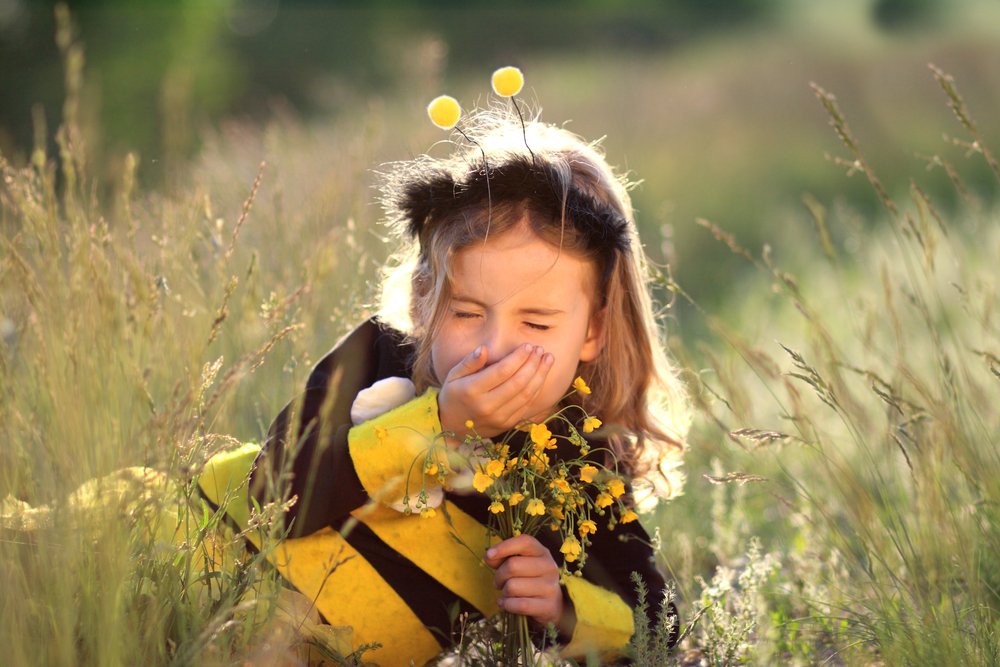
As it is with sneezing, emotions have a lot to do with the body, and are therefore associated with patterns of bodily change. Suppose you’re strolling in the woods and see a really huge, ugly grizzly bear right in front of you. Your heart begins to race and you start to shake like a leaf. Why does this happen? Certain emotions, like fear and anger, make our heart race and our muscles tense. Since fear has evolved to cope with danger, our body prepares us to flee or fight when we’re afraid. Both of these responses are integral in coping with potential threats that may pose a major survival challenge. This is definitely something that evolution would have selected for!
Some of our most advanced emotions can also be explained from an evolutionary view. Take guilt, for example. Evolutionary psychologists say that we feel guilty because, without that emotion, we would be more tempted to cheat others whenever we anticipated a personal gain with little risk. Cheating may be immediately advantageous, but it may be disadvantageous in the long run.
Moreover, if we cheat and get caught, it reduces our future prospects for the reciprocal exchange of resources. Showing signs of guilt makes other people co-operate, since they know we’re less likely to cheat if we feel guilt. If we are caught cheating and feel guilty, others are more inclined to forgive us than if we show no shame at all. Guilt therefore acts as a mechanism to promote behavior that maximizes the prospects of reciprocal exchange.

In addition to this, some emotions have been shown to involve bodily responses similar to simpler animals, which supports the evolutionary view.
Emotions Are A Social Construct
Critics of evolutionary psychology argue that emotions are socially constructed, rather than innate, meaning that they are a product of nurture, rather than nature. They reject the evolutionary theory of emotions being involuntary; instead, they believe that emotions are voluntary choices we dupe ourselves into treating as involuntary.
Defendants of this view believe that our culture dictates how we should feel and what we should do in a given situation. When we feel an emotion and act on it, we engage in a behavior that is prescribed by our culture. People argue that our presumption that emotions are involuntary, such as anger, may just be a convenient illusion. To be angry, we need to construe something as offensive, which is likely based on culturally informed moral judgments. In that case, how can anger be an animal reflex?
Moreover, anger is not seen in all cultures. In Inuit culture, people rarely show any signs of anger, probably since aggressive responses would be too risky in small culture surviving in harsh conditions. The Malay language of Malaysia doesn’t even have an exact synonym for ‘anger’! (Source)
There are other emotions that differ based on culture. The word amae in Japanese means an indulgent feeling of dependency, akin to what a child feels towards his mother. Westerners may recognize this feeling in children, but rarely attribute something like that to adults. Like amae, Japan has many different emotions that we would find alien!
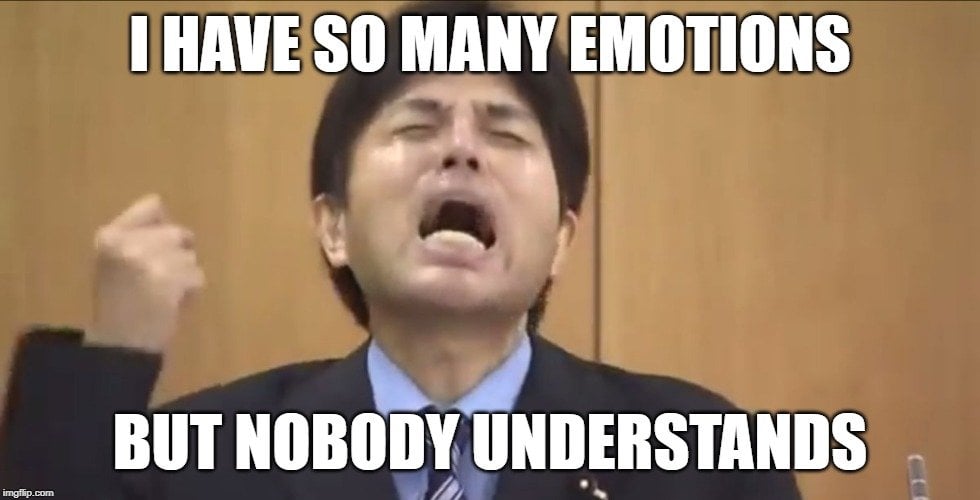
Emotions are based on our beliefs, and beliefs are based on the society of which we are a part. Imagine a sadistic culture that encourages people to rejoice in the suffering of others. The list of things that gives joy to people of that culture will be widened to include the suffering of other people. The intensity of an emotion, like jealousy, is also highly influenced by cultural factors and beliefs. The fact that culture can affect the incidence and intensity of our emotions makes them look less like biological truths and more like the product of social constructs.
Escaping The Predicament – What Is The Origin Of Emotions?
Evolutionary psychologists underestimate the contributions of culture and learning, whereas social constructionists over-emphasize the same. Basically, we need an explanation that can steer between both these extremes.
Perhaps we could do this by avoiding choice. We could say that both of these theories are right, but apply them to different emotions, making some emotions evolved and some socially constructed. We could use the evolutionary approach for the basic emotions, and justify more complex emotions as being responsive to cultural influence. For example, jealousy may be seen as a product of the basic emotions of sadness, fear, anger and disgust, coupled with a cultural attitude towards infidelity. When you feel jealous, you actually feel sad about losing your partner, fearful of spending your life alone, angry about the possibility of being betrayed, and disgusted by the thought of infidelity.

Complex emotions may also be derived from other people’s basic emotions. We feel guilty when we accept another’s anger as justified. We feel shame when we accept another’s contempt.
Moreover, a certain emotion can be felt in different ways in different situations. Imagine that you hear a loud noise, which startles you, so your heart starts racing. This is fear, but it’s not the same kind of fear as what you experienced when you saw a grizzly bear in the woods, or what you might experience due to an undesired election result.
Emotions are a complex concept and both evolutionary and socio-cultural considerations contribute to our understanding of what causes and affects them. The exploration of these theories and the resolution of disagreements around them is a perpetual process in contemporary emotion theory and related fields.
Meanwhile, the next time you feel a complex emotion bubbling up, the key is to determine the underlying basic emotions so you can take action that is the most helpful in keeping you balanced and emotionally under control!
References (click to expand)
- PRINZ, J. (2004, April 22). Which emotions are basic?. Emotion, Evolution, and Rationality. Oxford University Press.
- About Emotions There are 8 primary emotions. You are born .... James Madison University
- Are Emotions Born or Made? - Greater Good Science Center. The University of California, Berkeley
- (2018) Emotion - Stanford Encyclopedia of Philosophy. The Stanford Encyclopedia of Philosophy
- Emotions, Innateness, and Ethics - faculty.philosophy.umd.edu




